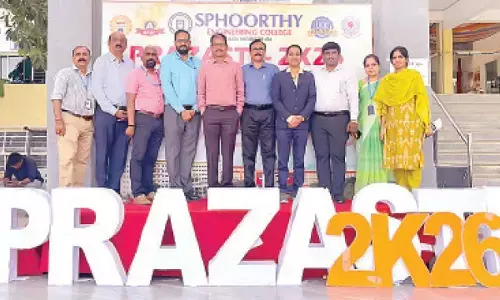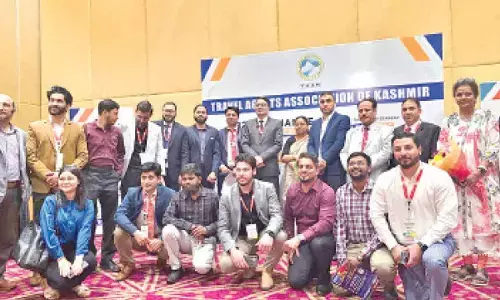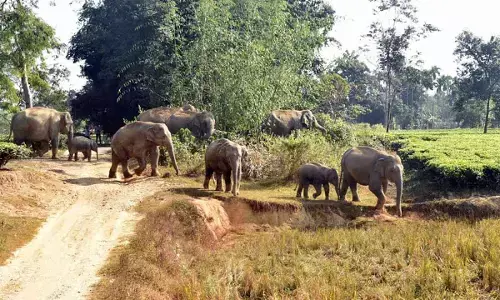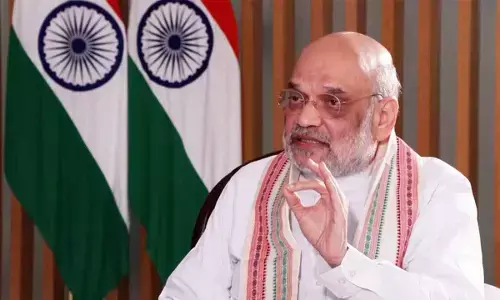‘When I’m rested, I’m at my best’
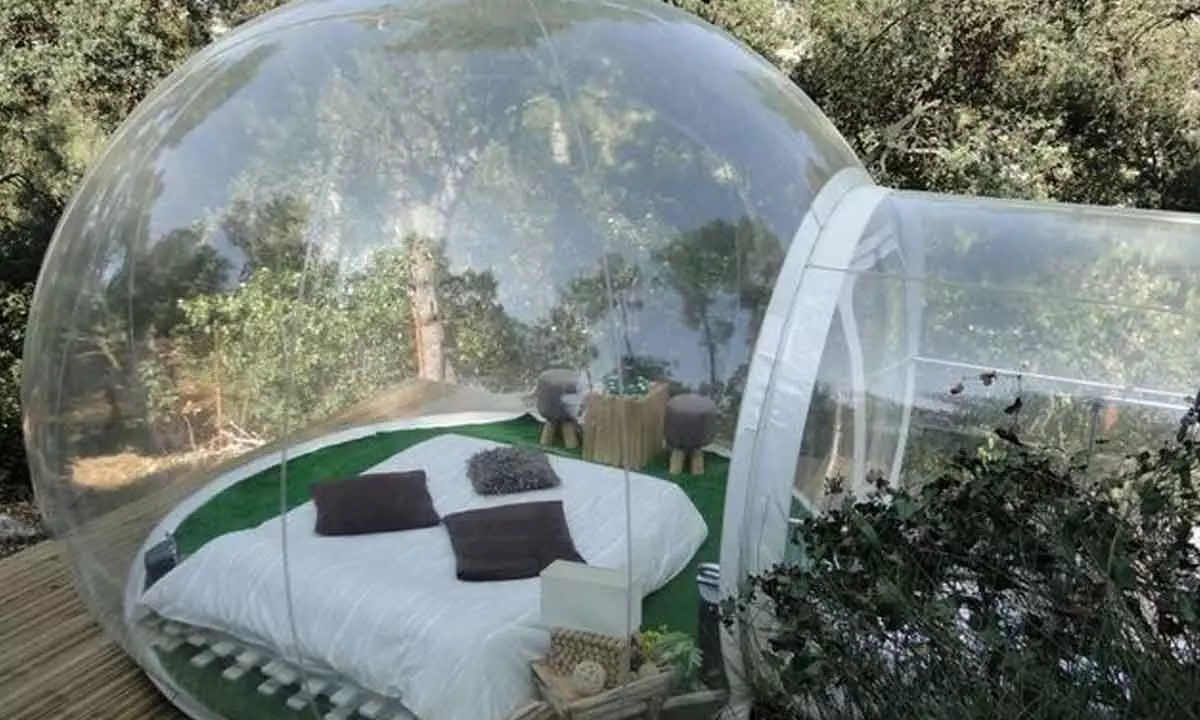
The subject of sleep has gained so much importance, in recent times, that a category of hotels, known as ‘sleep hotels’ has become a game changer in the hospitality industry. A sleep hotel does not merely provide rooms for people to rest their heads, while travelling, but also focuses on delivering unmatched sleep experience by providing sleep-enhancing amenities often overlooked by traditional hotels
There are many interesting facts, normally not known, about sleep. Otters, for instance, hold hands when they sleep, so that they don’t drift away from each other! And whales and dolphins, quite literally, fall half asleep, with each side of their brain taking turns, so that they can come up for air! Interestingly enough, horses sleep while standing, ready to run away from predators when needed, and elephants sleep less than any other animal.
While sleeping on the ground is not uncommon, people have, for long preferred beds. Beds have evolved, taking many different forms, reflecting the beliefs, and practical concerns, of cultures. In ancient Rome, for instance, where people slept depended on their social status. Slaves slept on mats of dried leaves or animal skins, or slept on the ground. Others slept on comfortable beds.
Hamsa, a legendary mythological, and spiritual bird, somewhat akin to a swan said to have had the ability to separate pure milk from its diluted form. Its feathers make for a comfortable bed, a ‘Hamsatulika Thalpa’, the modern equivalent of a bed of roses, literally and figuratively. Royalty, such as kings, queens, princess and princesses, slept on it.
In addition to those we noted earlier there are many methods to go off to sleep, quickly, and peacefully,
Prayer, for instance, can comfort one, and give peace, as one draws closer to sleep. And one begins the next day, feeling closer to God. I have found that by chanting ‘Hanuman Chalisa’, the Hindu devotional hymn, in praise of Hanuman, a devotee of Lord Rama, one of the most widely worshipped Hindu deities. It is a part of ‘Ramacharitmanas’, a version of ‘Ramayan’ by Tulsidas, the Hindu saint and poet, Another method, especially for children, is to sing quiet songs, or lullabies. Yet another is gentle, and repetitive tapping, which mimics a mother’s heartbeat in the womb, offering a sense of security. A rocking cradle, is a boon for parents of children who are fussy sleepers, with the rocking motion inducing sleep gradually.
Popular among other tested, and tried, methods is to have a cup of Chanomile tea, which has a mild sedative effect. Music, especially some typical genres of it, such as classical, ethnic, ambient and meditation, is also known to have a sedative effect. Also very effective, are sleep masks, which one is given while travelling in trains and planes, as they block out ambient light. Many people find that counting an endless series of identical white sheep, jumping over a fence, a simple, repetitive, and rhythmic method, which induces boredom, helping sleep. Finally, one well known, and internationally tested and tried method, of preparing for good sleep, is to have a soothing body massage.
Some animals, especially bears, spend winters, in tree roosts, in a dormant state called hibernation. People who remain inactive, or indoors, for extended periods are also said to be hibernating.
Sleep has been also a favourite subject of fairy tales, stories, novels and movies. ‘Sleeping Beauty’, for instance, is a story about a princess, in a palace, situated forest, who is cursed, by an evil fairy, to sleep for a hundred years, before being awakened by a handsome prince. What is more, a friendly fairy, aware that the princess would be frightened, if she finds herself alone when she awakens, uses her magic wand to put to sleep, every living person and animal in the palace and the forest. The story was also made into a motion picture, by the same name, an animated musical fantasy, produced by the unforgettable, and legendary, Walt Disney.
Similarly, the short story, ‘Rip Van Winkle’, authored by American author Washington Irwing, is about a Dutch- American villager in America named Rip Van Winkle, , who meets mysterious Dutchmen, imbibes their strong liquor and falls deeply asleep in the Catskill Mountains. He awakes 20 years later to a very changed world, having missed the American Revolution.
Another example is the story of the demon, or rakshasa called, Kumbhakarna, in the Hindu epic ‘Ramayana’, the younger brother of Ravana, the Emperor of Lanka and the abductor of Sita, the consort of Lord Rama. Born with immense strength, Kumbhakarna subdues Indra, the King of Swarga, or Heaven, and Yama, the God of Death and Justice, and the Ruler of Naraka or Hell. At the request of Indra, Brahma, the God of Creation, curses Kumbhakarna to ‘sleep like he is dead’. However, on Ravana‘s request, Brahma commutes the curse to one of sleeping for six months at a time, and waking up for the other six months. In the same context, one also recollects the popular 1960s number, sung by the unforgettable group ‘The Beatles’, “it’s been a hard day’s night”.
The subject of sleep has gained so much importance, in recent times, that a category of hotels, known as ‘sleep hotels’ has become a game changer in the hospitality industry. A sleep hotel does not merely provide rooms for people to rest their heads, while travelling, but also focuses on delivering unmatched sleep experience by providing sleep-enhancing amenities often overlooked by traditional hotels.
Sleep, as we have seen, is as essential to good health, but measurable differences in sleep health persist in populations across the world, creating additional burdens and reinforcing health inequities. In recognition of the importance of sleep, and with a view to lessening the burden of sleep problems on society, through better prevention and management of sleep disorders, World Sleep Day is observed every year on the Friday before the spring equinox, with that day falling on 15 March this year. There is a different theme for each year, the one for the current year 2024 being ‘Sleep Equity for Global Health’. More than 88 countries around the world participated in world Sleep Day last year.
World Sleep Society is a non-profit, professional membership organisation dedicated to advancing sleep health worldwide. It manages a variety of programs engaging people such as physicians, research and professionals as well as the public. The programmes include the World Sleep Congress, the World Sleep Day, the World Sleep Academy and the International Sleep Research Training Programme.
Sleepiness, on account of fatigue, impairs the functioning of the brain and causes slurred speech. The inimitable Performing Flea of English literature, P G Wodehouse, depicts this phenomenon most entertainingly. A character, in one of his immensely enjoyable novels, is advised by a psychiatrist to chant to himself “day by day, in every way, I am getting better and better,” as a mantra to go off to sleep. As the man begins to feel sleepy, the words get slurred and mixed up and he begins to say, “way by way, in every day, I am getting wetter and wetter!”
The majority of people have considerable difficulty in dealing with issues relating to sleep. But, then, there are those fortunate few, for whom sleep, quite literally, comes at the snap of their fingers. I remember my cousin, an engineer in the telephone department, who could doze off while standing in a moving bus, and holding the railing overhead! And, back home at night, and receiving reports from his subordinates about the condition of telephone lines in his jurisdiction, he would continue to converse while half asleep!
(The writer was formerly Chief Secretary, Government of Andhra Pradesh)



